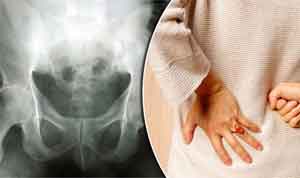- Home
- Editorial
- News
- Practice Guidelines
- Anesthesiology Guidelines
- Cancer Guidelines
- Cardiac Sciences Guidelines
- Critical Care Guidelines
- Dentistry Guidelines
- Dermatology Guidelines
- Diabetes and Endo Guidelines
- Diagnostics Guidelines
- ENT Guidelines
- Featured Practice Guidelines
- Gastroenterology Guidelines
- Geriatrics Guidelines
- Medicine Guidelines
- Nephrology Guidelines
- Neurosciences Guidelines
- Obs and Gynae Guidelines
- Ophthalmology Guidelines
- Orthopaedics Guidelines
- Paediatrics Guidelines
- Psychiatry Guidelines
- Pulmonology Guidelines
- Radiology Guidelines
- Surgery Guidelines
- Urology Guidelines
Yogurt with fruits and vegetables Lowers risk of Hip Fracture

In a Cohort Study of Swedish Women, Dr. Karl Michaëlsson and associates tried to determine how milk and fermented milk combined with fruit and vegetable consumption are associated with hip fracture.They have found out that high intake of fermented milk products, like yogurt, in combination with a high intake of fruits and vegetables, is associated with lower hip fracture rates in women.The study has been published in the Journal of Bone and Mineral Research.
The researchers used data from 38,071 women participating in the Swedish Mammography Cohort study (1987 to 1997) to determine how milk and fermented milk combined with fruit and vegetable consumption are associated with hip fracture.
They found that, compared with a low intake of milk (<1 glass/day) and a high intake of fruits and vegetables (≥5 servings/day), a high intake of milk (≥3 glasses/day) with a concomitant low intake of fruits and vegetables (<2 servings/day) resulted in a hazard ratio (HR) of 2.49 (95% CI, 2.03 to 3.05). This higher hip fracture rate among high consumers of milk was only modestly attenuated with a concomitant high consumption of fruit and vegetables (HR, 2.14; 95% CI, 1.69 to 2.71). a low intake of milk (less than one glass/day) and a high intake of fruits and vegetables (at least five servings/day).
The combination of fruits and vegetables with fermented milk (yogurt or soured milk) yielded the lowest rates of hip fracture in high consumers: hazard ratio of 0.81 for at least two servings/day of fermented milk and at least five servings/day of fruits and vegetables versus low consumption of both fruit and vegetables and fermented milk.
The authors concluded that the amount and type of dairy products, as well as fruit and vegetable intake, are differentially associated with hip fracture rates in women.

Disclaimer: This site is primarily intended for healthcare professionals. Any content/information on this website does not replace the advice of medical and/or health professionals and should not be construed as medical/diagnostic advice/endorsement or prescription. Use of this site is subject to our terms of use, privacy policy, advertisement policy. © 2020 Minerva Medical Treatment Pvt Ltd